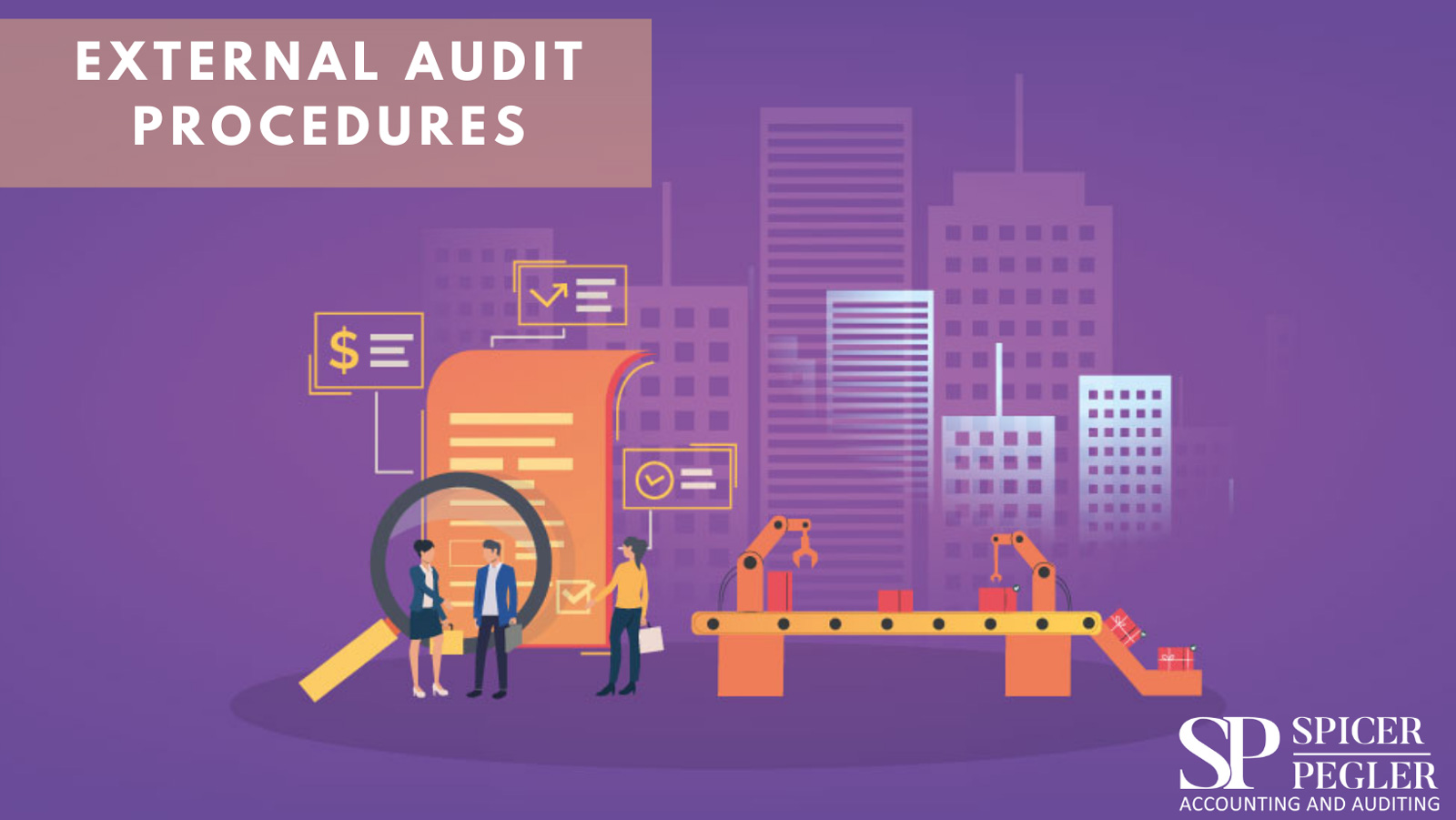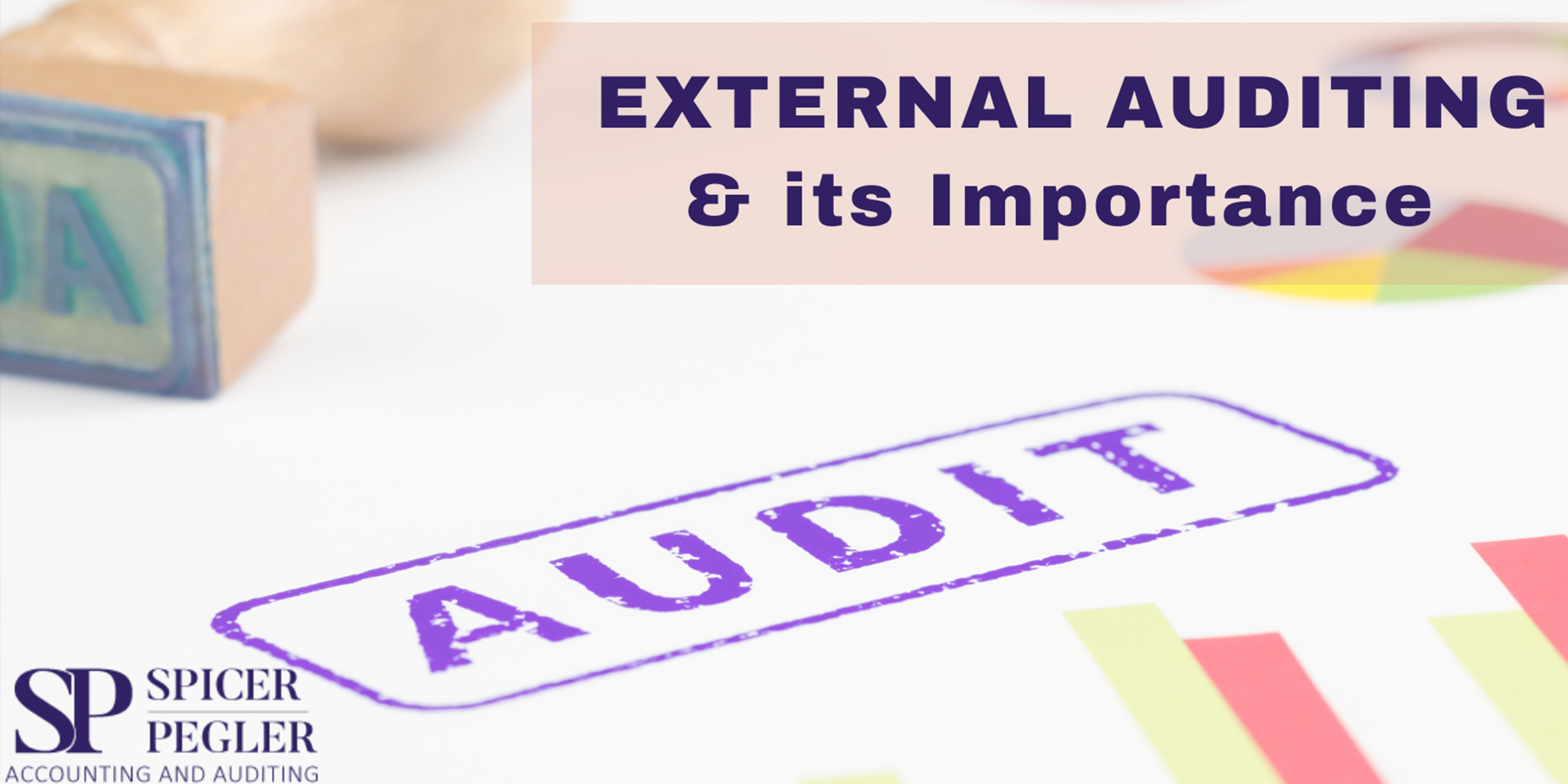External Audit Process
External Audit Process
An external audit process certifies that a company’s internal controls, processes, guidelines & policies are sufficient, effective & in compliance with governmental requirements, industry standards & company policies. This type of audit also guarantees that reporting mechanisms avoids errors in financial statements.
Major types of audits performed by external auditors include the financial statements audit, the operational audit, & the compliance audit. A financial statement audit analyzes financial statements, records, & related operations to establish obedience to accepted accounting principles.
External audit is the process of unbiased or individual valuation of the company’s financial statements by a qualified independent third party, the external auditor. In this case, auditors examine the transactions & balances of the company’s accounting records to verify whether they are comprehensive & accurate.
As a result, auditors express their opinion in the audit report, whether the company’s financial statements present fairly, in all material respects, in accordance with the applicable accounting standards and regulations.
External auditors are usually chosen by shareholders at the annual general meeting of the company. Likewise, external auditors are usually appointed based on their skills, experiences, qualifications, & reputations.
Objectives of External Audit
- To have an independent evaluation of financial statements whether they give a true & fair view, in all material regards.
- To analyze whether financial statements have been made in accordance with applicable accounting standards, such as IFRS.
- To improve the overall quality of the company’s financial statements so that the operators, such as shareholders, lenders, suppliers, & other stakeholders, acquire more confidence in having a business relationship with the company.
- To conform with relevant laws & regulations that required the company to have their accounts audited by an independent third party. This usually occurs to list companies & other public interest entities, such as banks & insurance companies, which are usually obliged by stock market regulations & country’s laws to have their accounts audited by an independent external audit firm.
Process of External Audit
The process of external audit generally abides by three stages that include planning stage, evidence gathering stage & completion stage.
1. Planning Stage:
The external audit procedure generally commences after auditors are appointed for the audit of the company. In general, audit activities start with the planning of an overall audit, include accepting clients by signing an engagement letter after approving on the terms, forming an audit team, determining the time & scope of the external audit.
Another imperative planning of an external audit is the risk assessment that auditors perform in order to measure the risks of material misstatements that could appear in financial statements due to any unfavorable business environment.
The final stage of the audit plan is creating the overall audit strategy to certify that the audit process is implemented in an efficient & effective manner & all the risks of material misstatements have been accurately referred. This stage of external audit involves constructing overall audit programs & procedures, including allocating audit assignments to various team members based on their skills & expertise.
2. Evidence Gathering Stage:
This is the next stage of external audit where auditors require to achieve adequate & suitable audit evidence before they can draft an opinion on the company’s financial statements. Hence, they are obligated to execute audit tests including tests of controls & substantial tests to gather the audit evidence.
In this stage of external audit, before execution of the substantive tests, auditors tend to perform tests of controls to attain evidence to support the efficiency of the controls so that they can rely on control. Hence, diminishing some of the work they require to perform in substantive tests. However, auditors only perform these tests of controls on those controls that can reduce the risk of material misstatements in financial statements.
Auditors then need to perform substantive tests including both substantive analytical procedures & tests of details. Substantive analytical procedures are achieved by observing trends, ratios, & relationships between data, including both financial & non-financial information.
Tests of details are accomplished by studying supporting documents on transactions & balances, physical review on fixed assets, & recalculation on the work processed by the client, etc.
In general, auditors require to test all relevant financial statement declarations, including incidence, reality, totality, accuracy, termination, & categorization, etc. in the external audit to find adequate & proper audit evidence to draft the basis of concluding an opinion.
3. Completion Stage:
Completion stage is the final stage of the external audit process. Here auditors build their conclusion on the client’s financial statements whether they are fair & true with respect to materials provided. In this case, external auditors give an overall conclusion by implementing their professional judgment & based on evidence they acquired during their audit.
As a result, they produce audit report stating an opinion on financial statements. Usually, the report would start with a statement “In our opinion, the financial statements present fairly…” or “In our opinion, the financial statements give a true and fair view…” This is the case of unmodified or unqualified audit opinion which is also referred to as “clean opinion”.
However, sometimes external auditors also give a modified audit opinion which is defined as qualified opinion, adverse opinion or disclaimer of opinion. In this case, it would mean financial statements have an issue, either due to material misstatements or due lack of audit evidence to form the basis of opinion.
What can Spicer-Pegler offer you in the field of external auditing?
Evolving regulations, digital transformation, competition, & the need to boost confidence in capital markets all mean that the external audit landscape is being reshaped faster than ever before, where leading companies address these problems by investing directly in new technologies and business models to face economic challenges of different sizes.
Thus, we at Spicer-Pegler test your company’s documents to determine whether the records & reports issued by your company’s various departments are accurate, as we work to present the information fairly according to the accounting standards approved in your company’s geographical location.
Moreover, Spicer-Pegler skillfully handle the most complex business issues through our global scope & integrated structure that allows us to provide a consistent level of quality external audit services worldwide, which gives you confidence in the information you provide to the board of directors and shareholders, which in turn they rely on in making their decisions.




